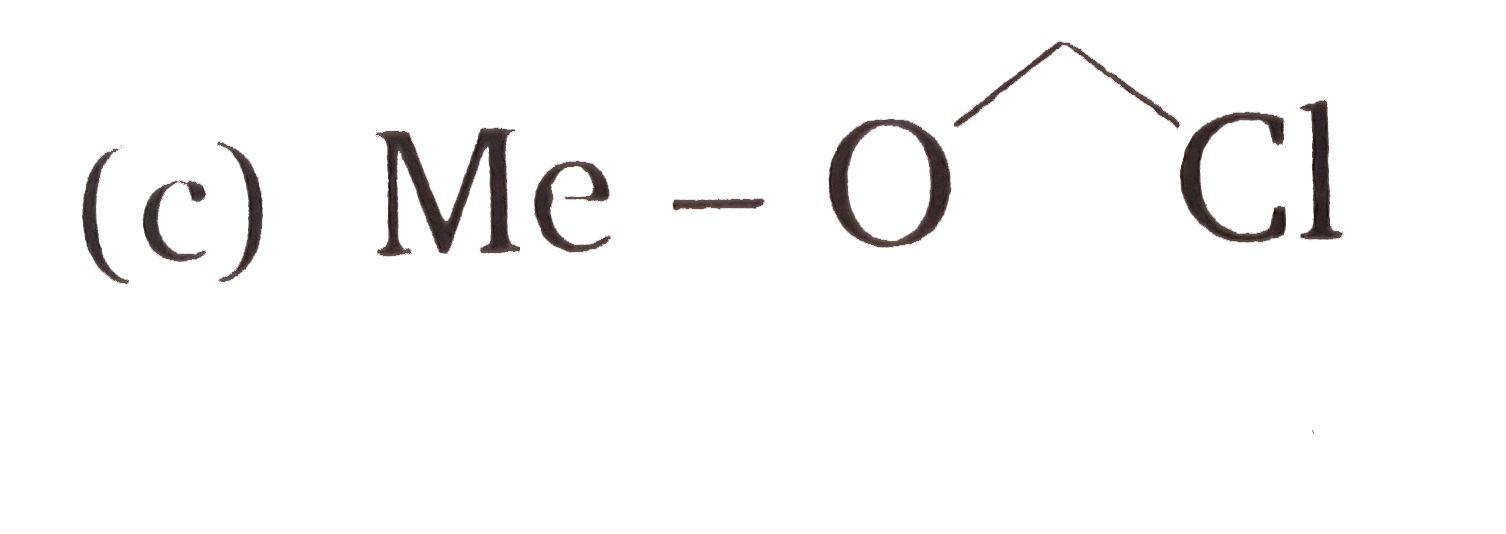Which of the following is most reactive ?
H2
H (nascent)
D2
H (atomic)
The correct Answer is:D
To determine which of the given options is the most reactive form of hydrogen, we will analyze each option step by step.
Step 1: Identify the Options
We have four options to consider:
1. H2 (Dihydrogen)
2. D2 (Deuterium)
3. Nascent Hydrogen
4. Atomic Hydrogen
Step 2: Analyze H2 and D2
- H2 (Dihydrogen) and D2 (Deuterium) are diatomic molecules.
- Both have a stable electron configuration similar to noble gases (like helium), which makes them relatively stable and less reactive.
- Since they are stable, they do not react quickly.
Step 3: Analyze Nascent Hydrogen
- Nascent Hydrogen is produced during certain chemical reactions, such as when zinc reacts with sulfuric acid (H2SO4).
- It is in an active state and is known to be very reactive because it is not in a stable form.
- The formation of nascent hydrogen releases energy, which increases its reactivity.
Step 4: Analyze Atomic Hydrogen
- Atomic Hydrogen is produced through the dissociation of diatomic hydrogen (H2) at very high temperatures (around 3700 K).
- This process requires energy input (approximately +43.9 kJ), but once formed, atomic hydrogen is highly reactive due to its unstable nature.
- However, atomic hydrogen has a very short lifetime and tends to recombine quickly to form H2.
Step 5: Compare Reactivity
- Between H2 and D2, both are stable and less reactive.
- Nascent hydrogen is highly reactive due to its formation process and energy release.
- Atomic hydrogen is also very reactive, but its short lifetime limits its reactivity in practical scenarios.
Conclusion
Considering the above analysis, Nascent Hydrogen (Option 3) is the most reactive form of hydrogen due to its active state and energy release during formation.
Final Answer
The most reactive form of hydrogen among the options is Option 3: Nascent Hydrogen.
---
We have four options to consider:
1. H2 (Dihydrogen)
2. D2 (Deuterium)
3. Nascent Hydrogen
4. Atomic Hydrogen
- H2 (Dihydrogen) and D2 (Deuterium) are diatomic molecules.
- Both have a stable electron configuration similar to noble gases (like helium), which makes them relatively stable and less reactive.
- Since they are stable, they do not react quickly.
- Nascent Hydrogen is produced during certain chemical reactions, such as when zinc reacts with sulfuric acid (H2SO4).
- It is in an active state and is known to be very reactive because it is not in a stable form.
- The formation of nascent hydrogen releases energy, which increases its reactivity.
- Atomic Hydrogen is produced through the dissociation of diatomic hydrogen (H2) at very high temperatures (around 3700 K).
- This process requires energy input (approximately +43.9 kJ), but once formed, atomic hydrogen is highly reactive due to its unstable nature.
- However, atomic hydrogen has a very short lifetime and tends to recombine quickly to form H2.
- Between H2 and D2, both are stable and less reactive.
- Nascent hydrogen is highly reactive due to its formation process and energy release.
- Atomic hydrogen is also very reactive, but its short lifetime limits its reactivity in practical scenarios.
Considering the above analysis, Nascent Hydrogen (Option 3) is the most reactive form of hydrogen due to its active state and energy release during formation.
The most reactive form of hydrogen among the options is Option 3: Nascent Hydrogen.
Topper's Solved these Questions
- BOOK - AAKASH INSTITUTECHAPTER - HYDROGENEXERCISE - ASSIGNMENT (SECTION - C) (Previous type questions)27videos
HYDROGEN
- BOOK - AAKASH INSTITUTECHAPTER - HYDROGENEXERCISE - ASSIGNMENT (SECTION - D) (Assertion-Reason Type question)15videos
HYDROGEN
- BOOK - AAKASH INSTITUTECHAPTER - HYDROGENEXERCISE - ASSIGNMENT (SECTION - A) (objective type question)30videos
HYDROGEN
- BOOK - AAKASH INSTITUTECHAPTER - HYDROCARBONSEXERCISE - Assignment(Section - D) (Assertion -Reason Type Question)24videos
HYDROCARBONS
- BOOK - AAKASH INSTITUTECHAPTER - M0ck test 26EXERCISE - EXAMPLE40videos
M0ck test 26
Similar Questions
Knowledge Check
- Question 1 - Select One
Which of the following si most reactive toward SN2 reaction ?
ACH2=CH−CH2−ClBPh−CH2−ClC DPh−C∣∣O−CH2−Cl
DPh−C∣∣O−CH2−Cl - Question 2 - Select One
Which of the following are most reactive compounds for nucleophilic acyl substitution?
A B
B C
C D
D
- Question 3 - Select One
Which among the following is the most reactive gt
AI2BIClCCl2DBr2
Which of the following is the most reactive halogen ?
View SolutionWhich of the following is the most reactive metal?
View SolutionWhich of the following is the most reactive isomer ?
View SolutionWhich among the following is most reactive to give nucleophilic addition?
View SolutionWhich of the following is the most reactive towards electrophilic attack ?
View Solution

